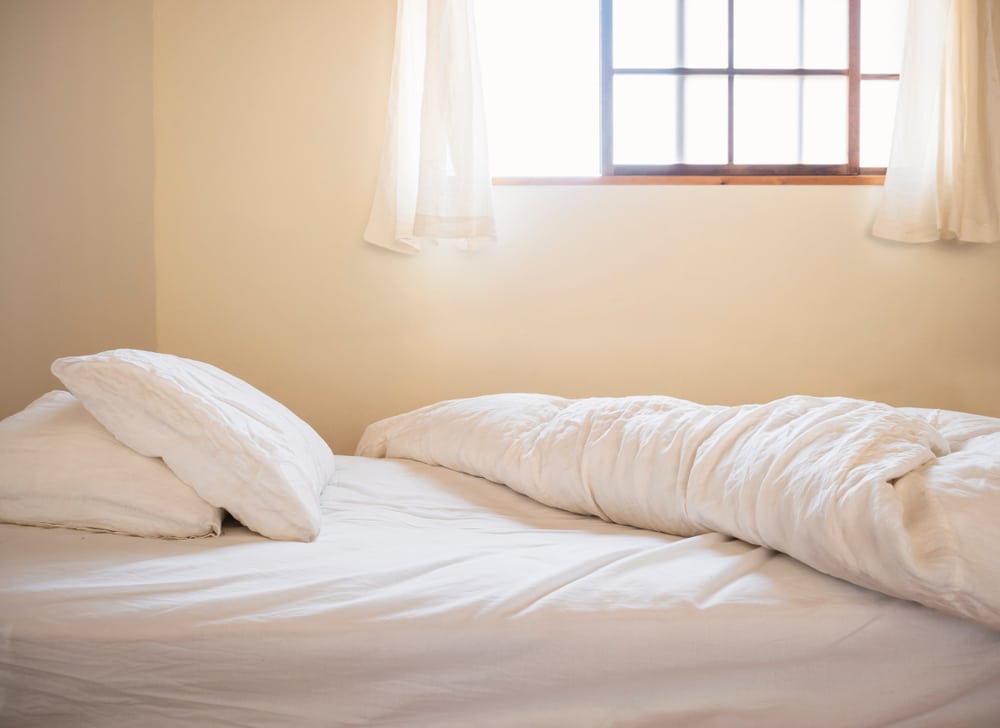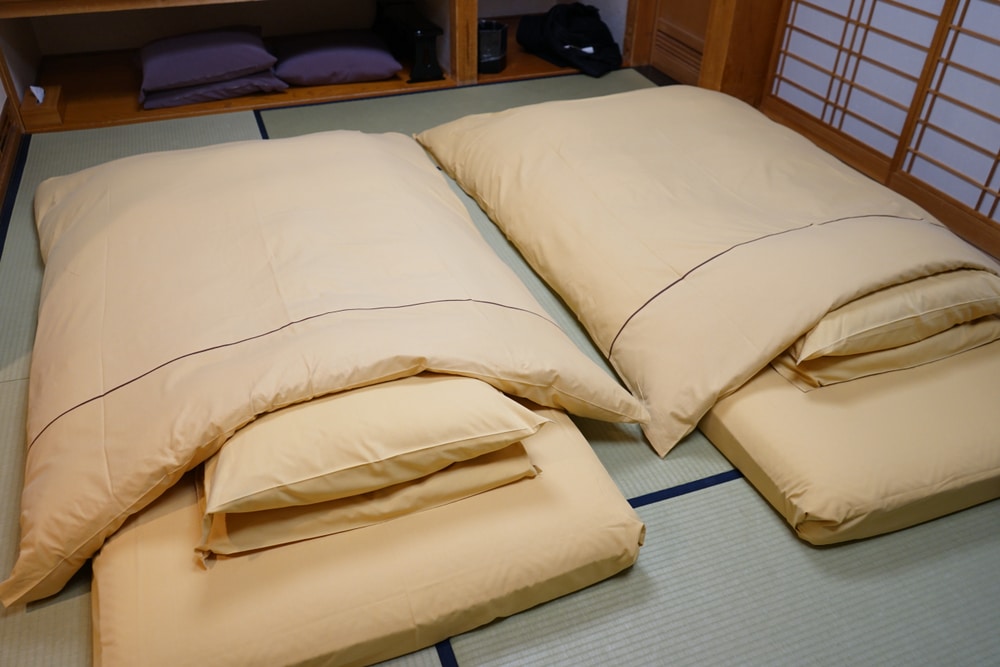5 Reasons Why You Need A Japanese Futon Bed

A futon is something to sleep on. Okay…that’s a gross oversimplification, but we like to keep things nice and simple at The Home. A futon is a traditional Japanese bedding that consists of a relatively thin padded mattress known as a ‘shikibuton’, a quilt (‘kakebuton’), and a pillow filled with beans (‘makura’). Essentially, it’s a bed with no bed frame.
In comparison to Western mattresses, Futon mats are comparatively thin and firm – something that many Japanese people are accustomed to, but us Aussies, not so much. But worry not – futons have evolved over the years, with a myriad of variations now available, from the traditional style to slightly thicker, denser and softer ones.
Amongst all of these intricacies with futon mattresses, the most significant difference is the fact that there is no bed frame; this point will be the basis for our 5 reasons why you may want to consider switching over to Japanese style bedding!
Reason #1 : Easier to make your bed
We think it’s safe to say that almost everyone has experienced the struggles of making their bed – especially when it comes to fitting the sheet. Those fitted sheets can be real nuisances to get on – straining your arm lifting up each corner of your bulky mattress. Although making your bed isn’t the most laborious of tasks, it can still take some time and effort that’s worth spending doing something more invigorating.

Now, we’re by no means saying a futon bed magically make itself, but some of the burden can be alleviated with this no-frame set up. The bed sheet is far easier to put on and remove, and you actually have the choice to either make your bed or not even make it at all (we’ll get to that)!
Reason #2: Frees up space in your room
Every morning upon rising, the Japanese fold or roll up their futon mats and either store them in the wardrobe or corner of the room. With Japansese rooms (and home for that matter) being quite small and compact, this is an uncomplicated way to create a more spacious living environment.
Regardless of if your room has ample or limited space, we think everyone can reap the benefits of having a fold-up and store-away futon! Think about how much surface area your bed takes up – alot right? If you love a bit of freestyle dancing, working out or yoga and pilates in your room, a futon mattress will open your room up to these activities.
Reason #3: Moving is a breeze!
We know that moving houses isn’t a common occurrence, but when it comes time to relocating to a new abode, it’s definitely a process. A process that involves a seemingly perpetual packaging of boxes, moving of furniture, and unscrewing of nuts and bolts. Not having a bed frame to disassemble, take to your new home, and reassemble, is one less stress taken off your shoulders…and arms, finger, brain, pretty much every part of your body. With a futon bed, all that’s required is folding the beauty up and popping it in the mover’s truck or even in the back of your car! Talk about easy.

You also have the liberty to position your futon any way you like. If you feel like sleeping facing the other way for a change, that’s possible. If you don’t want to sleep in the middle of the room and prefer against the wall, it’s as easy as dragging your futon across. If you can’t bothered tidying up the clutter of clothing occupying your designated futon area, no worries at all. Even moving your futon mat out to the living room for a movie and dessert night is a piece of cake!
Reason #4: Longevity
Much like Japanese people, futons have a notably impressive life expectancy. If well cared for, futons can last for up to 15 years as opposed to 10 years for a standard Western mattress. To reduce the risk of dust mites or bugs and keep your futon mattress nice and fresh, airing outside every now and then is a good habit to adopt. It’s as simple as folding it up, carrying it outside and propping it up against the balcony, veranda, or any clean surface in the backyard.
Reason #5: May aid in sleep
Sleeping on a futon bed is something that may take some time getting used to. Not just because of the difference in firmness, but also height. You’re essentially sleeping at the floor level, which can seem odd at first. But it actually makes getting in and out of bed surprisingly convenient – you can literally roll out of bed!

Traditionally, futon beds are known to be one of the six keys to good health in Japan. The are various upsides to sleeping on a futon, the most pertinent being improvement in back pain. The firmness of futons actually keeps joints in the right position. This prevents sagging and overstretching which according to Osteopaths, is a common cause of backaches. We a
ll know how those heavenly soft those cloud-like mattresses are, but at what cost? In the long-run, they could be putting some serious strain on your back.
Reason #5: Optimal for toss and turners
Ever fallen out of bed? For those who haven’t, you’re very lucky, because it’s not the most pleasant experience. Although not as dreaded, waking up with all your blankets off your bed and on the floor is quite annoying and leaves you shivering in the cooler seasons. If you’re a very ‘active sleeper’ and find yourself moving around frequently throughout the night, then a futon mat might be something to look into.
Not only does the close-to-floor level sleeping environment keep you grounded, you won’t have to worry about falling out of your sanctuary. Plus, blankets that have been involuntarily kicked off can easily be put but back over you, as they’ll be level and within arm’s reach!
(Bonus) Reason #6: Perfect for getting your stretch on!
Are you a morning-stretches type of person? If so, why not do them as soon as you wake up, in your bed? The futon makes for a surface that’s not too soft nor hard, allowing you to stretch the body and prepare for the day ahead.

As with anything in this world, inevitably there are downsides. Unless you move your futon near a wall and place some sort of padding up against it, sitting upright and reading a book before bed is a challenge. You can always lie face down to read, but some may prefer the other way around. Also, sitting on the edge of your bed to put your socks on will become an everyday convenience you’ll have to say farewell too.
We’re certain you can come up with some other positives that beds have over Japanese futons – so the choice is yours! At the end of the day, it’s all about what suits your lifestyle, preference and interior design.
Speaking of interior design, we’ve got tips on Scandiavian Decor on a Budget, The Top 5 Indoor Plants for Beginners, Brilliant Lighting for Industrial Home Decor and more! Learn how to propel your home interior and exterior to the next level, right here at The Home.